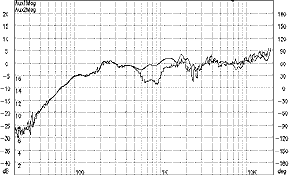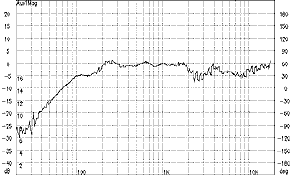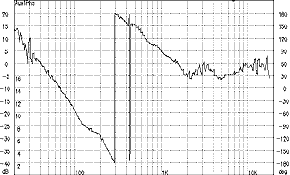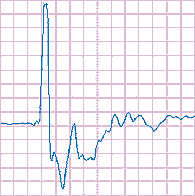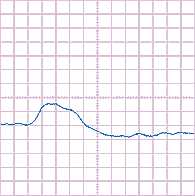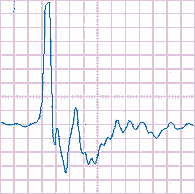| A Phase Linear Transmission
Line Project Section 6: Time Alignment Time aligning 1st order systems have great potential sonically. Such systems are the only analogue crossovers that can sum to a flat phase response. For the listener, a phase linear loudspeaker can give a magical feeling of actually being in the concert hall. Figure 6.1 shows the amplitude response when the tweeter and woofer is not time aligned compared to the aligned response. The result of misalignment is a broad dip of almost -10dB. |
|||||
|
Figure 6.1. Time alignemend and misaligned system |
Figure 6.2. Tweeter reverse connected |
Figure 6.3. Tweeter reverse connected phase sum. |
|||
| There are several ways
to a flat amplitude response. Jordan suggest mounting all drivers in the same plane
using the tweeter in reverse phase. The amplitude response in Figure 6.2 looks
quite nice. But the phase sum (Figure 6.3) is quite different from the time aligned system. The phase is no longer flat from 300Hz upwards (Figure 2.2). The feeling of being in the concert hall is no longer there. The first order crossover has a downward tilt that must be compensated for by moving the tweeter behind the acoustical center of woofer. |
|||||
|
We want to avoid the tweeter impulse (Figure 6.4) occuring before the woofer (Figure 6.5). Therefore, aligning the front of the woofer and tweeter impulse (Figure 6.6) should be done at the highest listening angle, which was chosen to be 12 degrees. Total distance from woofer front to tweeter is 80 mm. |
|||||
|
[ Contents | Intro | Measurements | Optimization | Integration | Step Compensation | Time Align | Crossover | Construction ]
|
|||||
